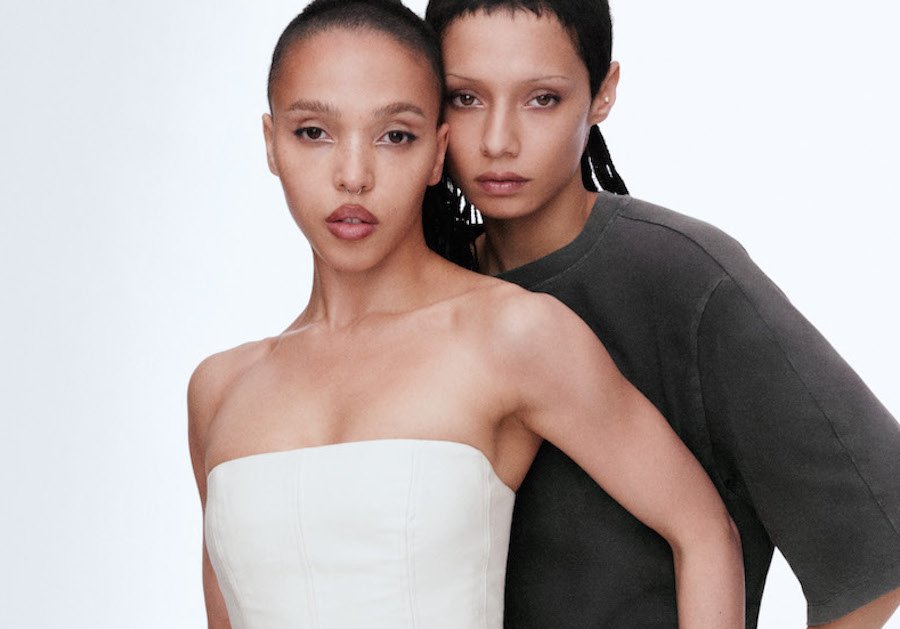In 2025, the worlds of business and fashion are more intertwined than ever. From blending artistic creativity with sharp strategic thinking to navigating the latest trends in sustainability and technology, careers in these fields are evolving fast. Whether you’re dreaming of running your own brand or shaping the future of retail, understanding how style and strategy meet is key. Let’s break down what’s happening in business and fashion careers and how you can thrive in this exciting, ever-changing space.
Key Takeaways
- Strategic thinking and creativity are essential in both business and fashion, forming the backbone of successful careers.
- Digital transformation and sustainability are reshaping how professionals approach challenges in these industries.
- Adaptability and a mix of technical and creative skills are becoming must-haves to stay competitive.
- Educational programs and hands-on experience play a huge role in preparing for diverse roles in these fields.
- The future of work will likely include remote options, virtual fashion, and new tech-driven opportunities.
The Intersection of Creativity and Strategy in Business and Fashion Careers
Understanding the Role of Strategic Thinking in Fashion
Strategic thinking in the fashion world isn’t just about numbers or logistics; it’s about creating a roadmap that aligns with a brand’s identity while adapting to market demands. Professionals in this field often juggle between analyzing consumer behavior, forecasting trends, and ensuring that the brand’s message remains consistent. For instance, understanding supply chain dynamics or planning seasonal collections requires a mix of creativity and analytical skills. The ability to think strategically ensures that a brand not only survives but thrives in a competitive market.
How Creativity Drives Success in Business and Fashion
Creativity is the heartbeat of the fashion industry. Whether it’s designing a new collection, curating a retail experience, or crafting a marketing campaign, innovation is key. A creative approach can transform mundane ideas into something extraordinary, capturing the attention of consumers and setting trends. Creativity doesn’t just belong to designers—it’s equally important for marketers, merchandisers, and even supply chain managers who need to find inventive solutions to challenges. In many ways, creativity is what keeps the industry fresh and exciting.
Balancing Artistic Vision with Business Acumen
Finding the right balance between artistic vision and business sense can be tricky but is absolutely crucial. A stunning design might catch eyes, but without a solid business plan, it won’t reach its audience. This balance is about making decisions that respect the creative process while ensuring financial viability. For example, designers might collaborate with business strategists to price their collections competitively or choose sustainable materials that align with both their vision and market expectations. A career in fashion often means wearing multiple hats, blending artistry with smart decision-making.
Emerging Trends Shaping Business and Fashion Careers in 2025
The Impact of Digital Transformation on Fashion Careers
The world of fashion has been deeply influenced by technology, and 2025 is no exception. From virtual fashion shows to AI-driven design tools, the industry is embracing innovation like never before. Digital transformation is creating roles in e-commerce, virtual styling, and data analysis. This shift has redefined how professionals interact with consumers, making technology a must-have skill. For instance, virtual try-ons and augmented reality shopping experiences are becoming standard, offering consumers new ways to engage with brands. Fashion professionals who can blend creativity with tech expertise are in high demand.
Sustainability as a Core Focus in Business and Fashion
Sustainability isn’t just a buzzword anymore; it’s a key driver shaping decisions in both fashion and business. Brands are being held accountable for their environmental footprint and ethical practices. This shift is creating career opportunities in sustainable sourcing, circular fashion, and eco-friendly production. Professionals need to understand how to implement green initiatives while balancing costs and consumer expectations. For example, many companies are exploring biodegradable fabrics and transparent supply chains to meet these demands.
The Role of Inclusivity and Diversity in Career Growth
Inclusivity and diversity are no longer optional—they’re essential. Companies are actively seeking to create work environments that reflect the diverse world we live in. This trend is evident in hiring practices, marketing campaigns, and even product lines. Fashion brands are expanding their size ranges and showcasing models from all backgrounds. For professionals, being part of this movement means understanding cultural nuances and advocating for representation in every aspect of the business. This focus on inclusivity is not only ethically sound but also a smart strategy for long-term growth.
As the industry evolves, professionals who adapt to these emerging trends will find themselves at the forefront of exciting opportunities.
Key Skills for Thriving in Business and Fashion Careers
The Importance of Adaptability in a Dynamic Industry
Fashion and business are fast-moving worlds. Trends change quickly, and what’s in today could be out tomorrow. To keep up, professionals in these fields need to be flexible. Being adaptable means staying open to new ideas and ready to adjust plans when things shift unexpectedly. For example, a sudden change in consumer preferences might require a marketing team to pivot their strategy overnight. Similarly, business professionals must be ready to embrace new technologies or market demands. Adaptability isn’t just about reacting to change—it’s about anticipating it and staying ahead.
Here are some ways to build adaptability:
- Stay curious and keep learning about industry trends.
- Develop problem-solving skills to tackle unexpected challenges.
- Be willing to step out of your comfort zone and try new approaches.
Blending Technical and Creative Skills for Success
In fashion and business, technical know-how and creativity go hand in hand. A designer might need to use digital tools to create patterns, while a marketer might need creative storytelling skills to connect with audiences. Balancing these two skill sets is essential for success.
Some examples of this blend include:
- Using data analytics to understand customer preferences and designing products that match those insights.
- Creating visually appealing online stores that are also user-friendly.
- Incorporating sustainable practices into product development while maintaining aesthetic appeal.
Leveraging Market Insights for Strategic Decision-Making
Understanding the market is like having a map in a competitive landscape. Market insights help professionals make informed decisions, whether it’s about launching a new product or entering a new market. For instance, identifying a growing demand for sustainable fashion can guide a brand toward eco-friendly materials and ethical production.
Key ways to use market insights include:
- Conducting regular consumer behavior studies.
- Analyzing competitors to find gaps or opportunities.
- Using tools like social media analytics to track trends and audience engagement.
Success in business and fashion careers isn’t just about talent—it’s about having the right skills and knowing how to apply them in real-world scenarios. Whether it’s adapting to change, combining creativity with technical expertise, or making data-driven choices, these abilities form the backbone of a thriving career.
Educational Pathways to Excel in Business and Fashion Careers
Top Programs for Aspiring Fashion Business Professionals
Finding the right educational program can set the stage for a successful career in fashion and business. Leading institutions worldwide offer specialized courses that blend creativity with strategic thinking. For example:
- ESMOD Fashion Business: This program focuses on market research, strategic analysis, and digital innovation, preparing students for competitive roles in the fashion industry.
- Istituto Marangoni: Known for its Bachelor of Fashion Business program, it combines creative and financial training, equipping students for roles like retail management and brand strategy.
- Fashion Institute of Technology (FIT): Offering courses in product development, e-commerce, and strategic branding, FIT emphasizes hands-on experience through internships.
These programs don’t just teach theory—they focus on practical skills that are immediately applicable in the industry.
The Value of Hands-On Experience and Internships
Classroom learning is essential, but nothing replaces the value of real-world experience. Internships and hands-on projects allow students to:
- Build professional networks within the industry.
- Understand the inner workings of fashion brands and businesses.
- Gain confidence in applying both creative and business skills in real scenarios.
Internships often serve as a bridge between academic learning and professional success, giving students a taste of the fast-paced, ever-changing fashion world.
Specializations That Enhance Career Opportunities
Specializing in a niche area can make you stand out in a competitive job market. Some in-demand specializations include:
- Visual Merchandising: Crafting compelling in-store displays that drive sales.
- Digital Commerce: Managing e-commerce platforms and understanding consumer behavior online.
- Sustainability and Ethical Practices: Focusing on eco-friendly materials and ethical production methods.
By choosing the right specialization, you align your skills with emerging trends and industry needs, opening doors to diverse career paths.
Navigating Challenges in Business and Fashion Careers
Overcoming Economic and Industry-Specific Hurdles
The business and fashion industries are no strangers to financial ups and downs. Rising costs, shifting consumer priorities, and global economic pressures often test the resilience of professionals in these fields. Adapting to these hurdles requires a mix of flexibility and strategic planning. For instance, fashion brands are embracing cost-effective production methods, while businesses are rethinking their operational models to stay competitive.
- Economic Challenges: Inflation and fluctuating raw material costs impact profit margins.
- Industry-Specific Issues: Fast-changing trends demand quick responses from designers and marketers alike.
- Solutions: Investing in market research and innovative technologies can help mitigate these risks.
Addressing Sustainability and Ethical Concerns
Sustainability isn’t just a buzzword anymore—it’s a necessity. Consumers are demanding transparency, ethical labor practices, and eco-friendly materials. For professionals, this means staying informed and proactive about sustainable practices.
- Key Focus Areas:
- Reducing waste through recycling and upcycling.
- Sourcing materials responsibly.
- Ensuring fair wages and working conditions.
Building a sustainable career in fashion or business requires not only awareness but a commitment to ethical practices. Small steps, like choosing eco-friendly suppliers or supporting fair-trade initiatives, can make a big difference.
Building Resilience in a Competitive Landscape
Competition in these industries is fierce. Whether it’s launching a new clothing line or breaking into a saturated market, the pressure to stand out is intense. Professionals must cultivate resilience to navigate setbacks and seize opportunities.
- Practical Tips:
- Stay updated on industry trends.
- Network with peers and mentors.
- Develop a growth mindset to turn challenges into learning experiences.
In 2025, the ability to adapt, innovate, and remain ethically sound will set apart the leaders in business and fashion. By addressing these challenges head-on, you can carve out a meaningful and impactful career.
The Future of Work in Business and Fashion Careers
The Rise of Remote and Flexible Work Models
Remote work is no longer just a trend; it’s becoming the standard in many industries, including fashion and business. In 2025, more professionals are embracing flexible schedules and hybrid setups. This shift allows for better work-life balance and opens up opportunities for talent across different geographies. Flexibility in work arrangements is now a key factor in attracting and retaining top talent. Companies that fail to adapt to these expectations may struggle to compete.
How Technology is Redefining Career Roles
Technology continues to reshape the way we work. In fashion, AI and automation are taking over repetitive tasks like inventory management and even aspects of design. Meanwhile, in business, tools for data analytics and customer insights are enabling faster, smarter decisions. For professionals, this means the need to reskill or upskill is more pressing than ever. Roles are evolving, and staying updated on emerging tech is critical for career growth.
Preparing for the Metaverse and Virtual Fashion Opportunities
The metaverse is not just a buzzword anymore; it’s a growing reality. Fashion brands are already experimenting with virtual clothing lines and avatars, creating new career paths in digital design and marketing. For example, professionals skilled in 3D modeling or virtual reality could find themselves in high demand. As these virtual spaces expand, the line between digital and physical work environments will blur, offering unique opportunities for innovation and collaboration.
The future of work is a blend of adaptability, technology, and creativity. Those who embrace these shifts will find themselves better equipped to navigate the ever-changing landscape of business and fashion careers.
Conclusion
The worlds of business and fashion are evolving rapidly, and 2025 is shaping up to be a year of both challenges and opportunities. Whether you’re drawn to the creative side of fashion or the strategic aspects of business, the key to success lies in staying adaptable and informed. By blending innovation with practicality, professionals in these fields can navigate the shifting landscape and make meaningful contributions. As industries continue to intersect, the potential for growth and collaboration is endless, offering exciting possibilities for those ready to embrace the future.
Frequently Asked Questions
What skills are essential for a career in business and fashion?
To thrive in business and fashion, you need a mix of creative and strategic skills. This includes adaptability, market analysis, and technical know-how, along with creativity and a good understanding of sustainability and inclusivity.
How does technology influence careers in fashion and business?
Technology is reshaping the industry through digital platforms, virtual fashion, and tools like AI. These innovations improve production, marketing, and customer engagement, creating new career opportunities.
Why is sustainability important in the fashion industry?
Sustainability addresses environmental and ethical concerns, helping brands reduce waste and promote fair practices. It’s now a key focus for long-term success in fashion and business.
What educational paths are best for entering the fashion business?
Programs in fashion management, marketing, or business are ideal. Hands-on experiences like internships and specializations in areas like digital commerce or sustainability also enhance career prospects.
What challenges do professionals face in the fashion industry?
Challenges include economic pressures, fast-changing trends, and the need to address sustainability and inclusivity. Professionals must be flexible and innovative to overcome these hurdles.
What are some emerging trends in fashion careers for 2025?
Key trends include the rise of remote work, digital transformation, and the growing importance of sustainability and diversity in shaping career growth.

Peyman Khosravani is a global blockchain and digital transformation expert with a passion for marketing, futuristic ideas, analytics insights, startup businesses, and effective communications. He has extensive experience in blockchain and DeFi projects and is committed to using technology to bring justice and fairness to society and promote freedom. Peyman has worked with international organizations to improve digital transformation strategies and data-gathering strategies that help identify customer touchpoints and sources of data that tell the story of what is happening. With his expertise in blockchain, digital transformation, marketing, analytics insights, startup businesses, and effective communications, Peyman is dedicated to helping businesses succeed in the digital age. He believes that technology can be used as a tool for positive change in the world.










